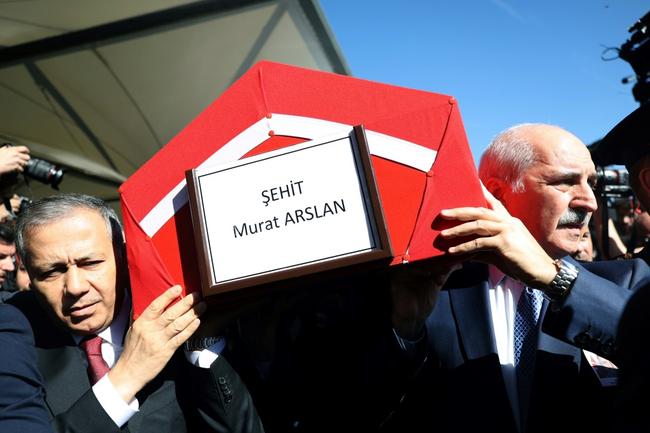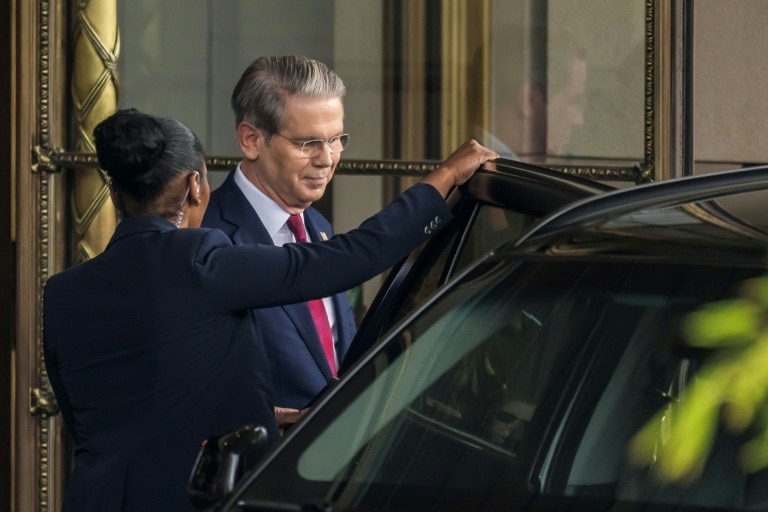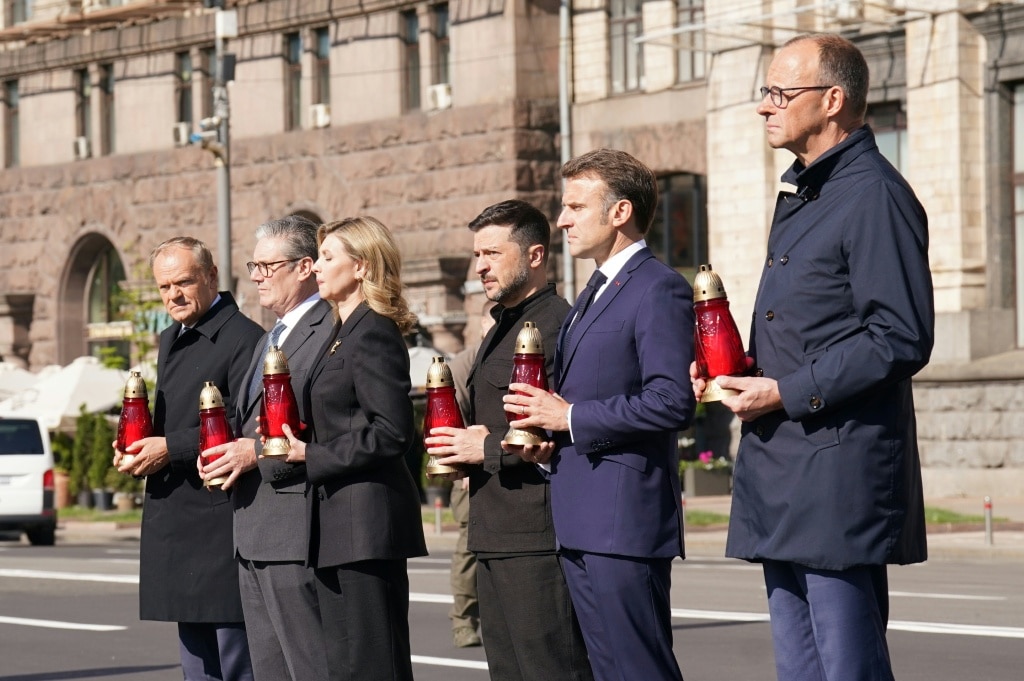Turkey buries attack victims after striking PKK
Turkey buries attack victims after striking PKK

Turkey said it had proof that PKK militants were behind the deadly Ankara attack that claimed the lives of five people who were laid to rest Thursday after an emotional farewell.
Wednesday's shooting attack at the state-run Turkish Aerospace Industries (TAI) came after days in which the government appeared to be leaning towards a resumption of dialogue with Kurdish militants.
After government ministers said they were "very likely" responsible, the military pounded PKK targets in Syria and Iraq overnight in raids that Kurdish militants in Syria said left 12 civilians dead.
And on Thursday investigators confirmed that both attackers, a man and a woman, were "PKK terrorists", Interior Minister Ali Yerlikaya wrote on X.
Both appeared in CCTV images posted on X in which they are seen emerging from a taxi then firing assault rifles before entering the building in an attack that killed five and wounded 22 others.
After flying in from Russia where he had attended the BRICS summit of major emerging economy nations, President Recep Tayyip Erdogan chaired a security meeting at Istanbul's old Ataturk airport.
There he was briefed by top diplomat Hakan Fidan, spy chief Ibrahim Kalin, the defence and interior ministers, the army chief, the head of Turkey's state Defence Industry Agency and top officials from his ruling AK party, the Anadolou news agency reported.
After a day in which the victims were laid to rest following mournful ceremonies, many attended by government representatives, Turkey appeared to be planning a tough response.
- Security stepped up -
With 14 of the 22 wounded still in hospital, security measures were stepped up at Istanbul's two international airports.
Overnight, the military struck "47 terrorist targets" in Syria and northern Iraq, the defence ministry said, claiming to have killed "59 terrorists" including two in senior positions.
Kurdish sources in northern Syria said the strikes had killed 12 civilians and wounded 25 others.
The attack struck amid growing signs of a political thaw between Ankara and Kurdish militants.
Just hours before the attack, PKK leader Abdullah Ocalan -- who has been jailed on a Turkish prison island in solitary confinement since 1999 -- received his first family visit in years.
His nephew, Omer Ocalan, a lawmaker for the main pro-Kurdish DEM party, confirmed the visit on X, saying the family had last seen him "on March 3, 2020".
The only other contact was a brief phone call in March 2021.
His uncle was "in good health" and had sent a message, saying: "If the conditions allow, I have the theoretical and practical power to shift this process from an arena of conflict and violence to one of law and politics."
Abdulkadir Selvi, a columnist for the Hurriyet daily which is close to the government, said the meeting lasted two hours and that "Ocalan said he was ready to lay down his arms."
The visit came a day after Devlet Bahceli, head of the far-right MHP, which is close to Erdogan and fiercely hostile to the PKK, sparked shockwaves by inviting Ocalan to parliament to renounce terror and dissolve his movement.
DEM -- the third largest party in parliament -- said it was "noteworthy" that the TAI attack happened "just as Turkish society was talking about a solution and the possibility of dialogue".
Arrested on February 15, 1999 in Kenya by Turkish security forces after years on the run, Ocalan was brought back and tried but escaped execution after Turkey abolished capital punishment in 2004.
He has since lived in an isolation cell on Imrali prison island in the Sea of Marmara, turning 75 in April.
In 1978 he founded the PKK which went on to spearhead a brutal insurgency that has killed tens of thousands in its fight for independence.
He first called for dialogue and a ceasefire in 2012 and again in 2013, before the bloody conflict resumed in 2015.
ach/hmw/rlp


